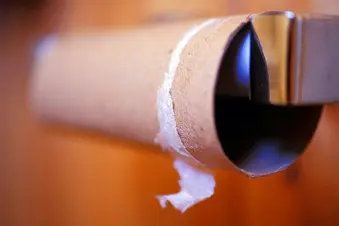Quiz: The Scoop on Poop


Question 1/12
Your poop should always be an S-shape.
- True
- False
Question 2/12
If you don’t poop every day, dangerous toxins can build up in your body.
- True
- False
Question 3/12
A BM can make you giddy.
- True
- False
Question 4/12
How long does it usually take for something you ate to come out in your poop?
- 12 hours
- 1 to 3 days
- 1 week
Question 5/12
What makes stool float?
- Gas
- Fatty foods
- Both
Question 6/12
Brown-colored poop is a sign of good health.
- True
- False
Question 7/12
Always get tarry, black stool checked out by a doctor.
- True
- False
Question 8/12
How often does the average person pass gas?
- 3 to 4 times a day
- 14 times a day
- 50 times a day
Question 9/12
As long as you eat a healthy diet, your poop shouldn’t smell bad.
- True
- False
Question 10/12
Do prunes really help constipation?
- Yes
- No
Question 11/12
Streaks of blood on your stool or toilet paper are most likely caused by:
- Hemorrhoids
- Cancer
- IBS
Question 12/12
Doctors can transplant stool from one person to another to help with unhealthy bowels.
- True
- False
